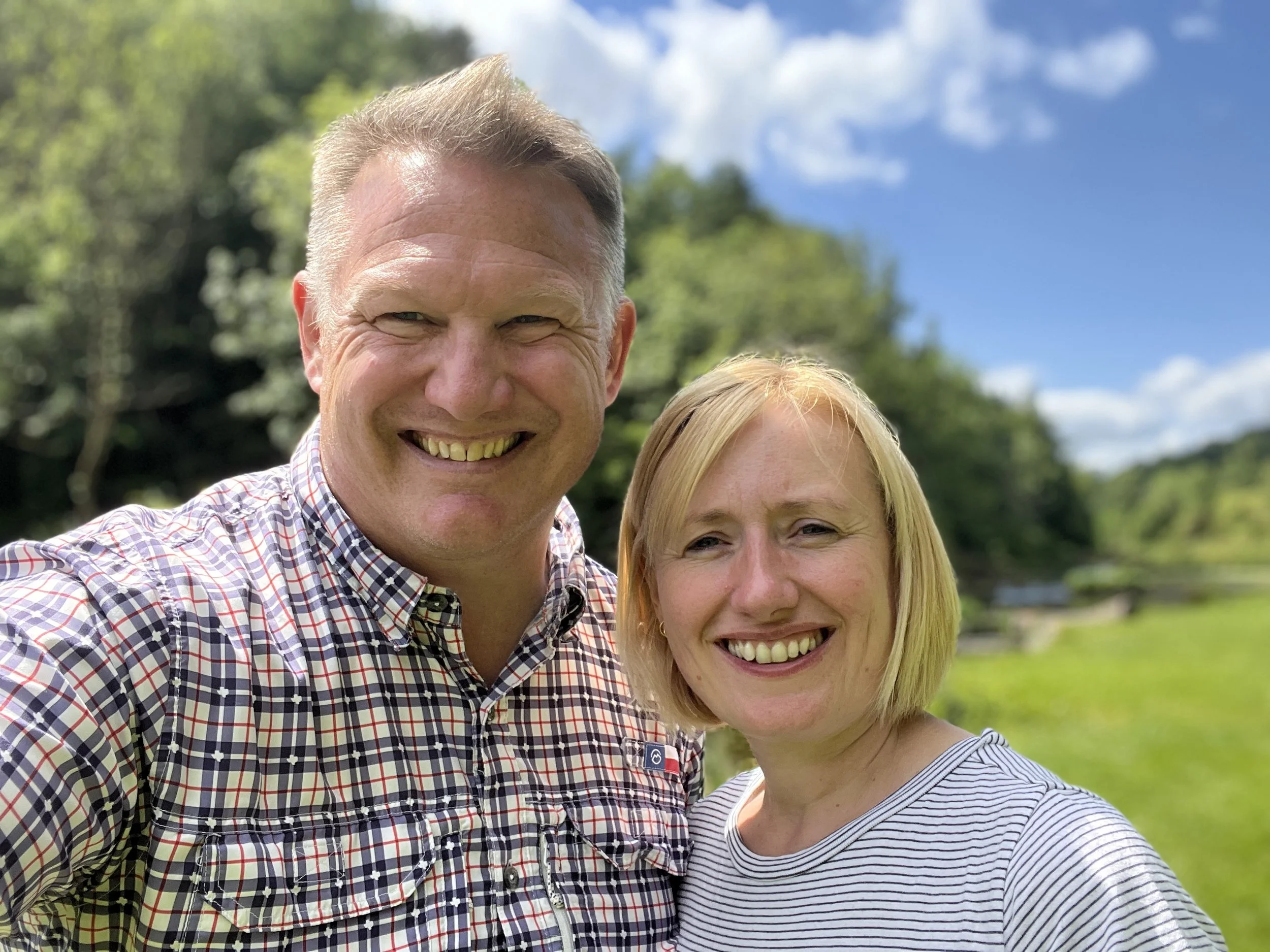A Growing Eldership Team - An Independent Rural Perspective
Our church is elder led and has a full-time (not always the case in our history) elder who we call Pastor. That said, we do recognise that, biblically, all elders are pastors and appreciate that many churches would rather not differentiate between their elders (paid or lay) using this title. In our church, elders delegate areas of service to our deacons and, through our constitution, we empower all our members. We also recognise the biblical importance of having a plurality of church elders - shepherds, pastors or overseers of God’s people. I hope this reflection is useful and contributes to an ongoing conversation related to healthy and growing leadership teams.
Complementary Plurality
1 Corinthians 12:4-7; Romans 12:4-6
We believe that a healthy church eldership should operate as a horizontal partnership, not as a vertical hierarchy with a single appointed leader (e.g denominations with single leader). Each elder has the same authority - legitimate (biblical) powers of oversight and responsibility to shepherd Christ’s flock.
Elders are a team of brothers, each with distinct character and gifting. It’s vital that our leadership teams make the most of each elder’s strengths while accommodating individual weaknesses.
We believe that part of the role of our Pastor (a full-time or bivocational elder and pastor amongst pastors), is to help shape the vision of the church and exercise leadership gifting within the eldership team - setting our team agendas and helping every elder invest their time and abilities for the flourishing of the church and the leadership team as a whole. So, we believe that a church eldership is not a ‘leaderless’ entity - see ‘Plurality Principle’ by Dave Harvey. “Even among equals, there must be leadership. And this calls for the all-too-rare combination of humility and courage.” (Sam Storms)
Suggested application for growing elderships
Existing elders ensure they affirm and utilise the new elder’s unique gifts while being mindful of areas where they may need support.
The new elder (and new Pastor) should take time to understand the strengths and roles of existing elders; seeking to enhance the team dynamic rather than unintentionally disrupting it.
All elders should help and encourage the Pastor to lead the team and, because they have been set aside for this, aid them to exercise healthy and joyful oversight of the day to day running of the church.
How else might you foster a complementary plurality?
Humble Learners
Philippians 2:3-4; James 1:19; Proverbs 27:17
The dynamic of an eldership team inevitably changes when a new elder (including a new Pastor) joins. This can be challenging. Even in the secular world, team (re)formation is described in stages: Forming, Storming, Norming, and Performing. As the eldership grows, we must all embrace a posture of humble listener/learner.
Existing elders need to be willing to reassess their approach, humbly learning from the new elder - particularly if they bring significant experience and wisdom. In the same way, incoming elders (including a new Pastor) should take time to listen to and learn from the established leadership team before proposing or implementing changes.
This transition (a growing eldership) is a great opportunity for the church and the leadership team to revisit and assess what has become routine, ensuring that it remains biblical and purposeful. But, perhaps this process should not be rushed, and change should not be assumed.
Suggested application for growing elderships
Existing elders should actively invite input from the new elder and create space for dialogue about practices, approaches and how the new elder might utilise their unique gifting for the flourishing of the eldership and church.
The new elder should observe and listen during the initial stages of their appointment, asking questions (especially of the elders), offering feedback patiently and constructively and gradually contributing to discussions about change. They should take time to understand their new context (inc. independent church culture and rural culture).
How else might you adopt a posture of being humble listeners?
Unity of Effort
Ephesians 4:1-6; 1 Corinthians 1:10; Proverbs 15:22
The church’s agreed vision and values should perhaps underpin a shared approach. Also, an eldership team must avoid either becoming laissez-faire or adopting a “go solo” mentality.
While individual elders may take responsibility for leading (the elders’ thinking) in certain areas, decisions that may lead to significant change should perhaps follow a shared (elders together) process:
1. Reflection – Analysis of the status quo (with significant input from the church family).
2. Consideration – Evaluating potential courses of action.
3. Decision – Agreeing on a strategy and timeline, and communicating this effectively.
4. Implementation – Acting on the decision and celebrating success together.
A rushed or siloed approach, where an elder views a ministry area as ‘their ministry’ and excludes others (including other elders) from the learning/decision-making process, may undermine unity. At every stage, decisions should perhaps reflect our collective learning, wisdom and mutual accountability. With (usually) more time to process, communicate and act, the Pastor has a key role in facilitating any change.
Suggested application for growing elderships
Existing elders should listen openly to the perspectives and ideas of new elders and be willing to consider change - they may have developed blind spots which need a light shining on them.
Pride may be a huge barrier to adapting/revitalisation and, so, existing elders should pray in the early days that they would have humility, listen patiently and respond with grace - especially if pride is pricked.
The pursuit of unity does not mean elders must surrender their own convictions for peace.
The new elder should avoid rushing change or going alone and should honour the existing means of processing change within the church (e.g. elders and homegroups).
An elder should absolutely be free, without other elders, to learn from couples and individuals (about areas of church life) - especially as they share meals and time together with brothers and sisters. That said, formal learning should be done together. Avoiding developing ‘informal learning committees’ around one elder will help maintain a healthy balance of power (see Powerful Leaders by Marcus Honeysett) as you seek to move forward together.
All should strive to foster collaboration and be prepared to prioritise team consensus, even when that requires compromise.
How else might you foster unity?
Freedom of Action
Galatians 5:13
Despite the above point, your goal is to cultivate an environment where your church and its leaders can take initiative and risks without fear.
While unity is essential, we must also allow for freedom of action, avoiding “analysis paralysis.” Elders must trust one another and the church to lead and serve faithfully. A shared commitment to work collaboratively, and your accepted vision, values and strategies, should enable freedom of action.
Suggested application for growing elderships
Elders should resist micromanaging the church (and one-another), instead encouraging brothers and sisters to take initiative.
Elders should use our own freedom wisely, ensuring that decisions align with the team’s shared goals and values. Freedom of action should not undermine your desire to function and flourish as a united leadership team.
How else might you foster freedom of action with unity?
Control and Founder’s Syndrome
James 4:6
Founder’s syndrome can occur when a founder’s strengths in building an organisation (e.g. planting a church) become a limitation as the organisation grows. A planter may struggle to adapt to new leaders - resisting change, or holding onto control in unhelpful ways. But, this is not an issue for planters alone. This need for unhealthy control may be expressed by long term elders (not just planters) and those who have been in long standing positions in another church (perhaps denominational) without a healthy plurality.
If you have been serving as an elder for a while, perhaps you have felt uncomfortable with the pace of change and some assumptions and criticisms of the church - leading to fear and an autonomic tendency to slow things down. We must address any unhealthy control issues. That said, we must also be careful - our instincts (to push back and slow things down) and discomfort may be well founded.
If we desire a healthy plurality, every elder must be able to accept and, indeed, own a consensus which may not be aligned to our personal preferences.
Suggested application for growing elderships
The elders should explore and address any unhealthy controlling behaviour identified in one-another - ideally before appointing a new elder too.
We should all be committed to maturing and peace - quick to confess and seek reconciliation and truly repentant of unhealthy behaviours.
We should all be prepared to submit to and own any consensus, or pause change. If the elders are not united then this will be an issue for the church as a whole.
How else might you encourage healthy leadership?
Rob Scothern
Rob is pastor of Peak Trinity Church in Derbyshire, England. He is part of the Rural Project leadership team. He studied with Porterbrook Learning and Crosslands Seminary, is married to Claire, and has three children (Grace, Harry and Theo).

